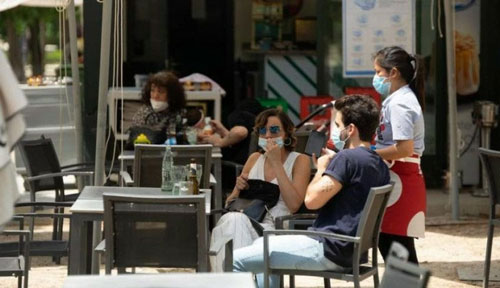Barcelona
Spain’s Catalonia on Thursday extended for a second time a nighttime curfew that was imposed on the tourist hotspot to fight a Covid-19 surge.
A Catalan court approved the regional government’s request to extend the nightly curfew between 1:00 am and 6:00 am in 163 cities including Barcelona and popular beach resorts like Sitges and Salou.
The measure was imposed in the northwestern region bordering France in mid-July and this is the second time that it is extended.
Catalonia has Spain’s highest Covid-19 incidence rate. Before imposing the curfew, the region had instituted other virus restrictions such as limiting gatherings in public and private to 10 people.
The surge in infections has put pressure on Catalonia’s hospitals, with 45 percent of the region’s hospital beds occupied by Covid-19 patients, compared to 17 percent nationally.
Several other regions, including Andalusia in the south and the Balearic Islands in the Mediterranean, have also moved recently to reimpose limits on nightlife to fight a rise in infections driven by the highly contagious Delta variant of the virus.
Spain’s infection rate per 100,000 population over 14 days stabilised on Wednesday at nearly 700, a level about five times higher than it was a month ago. In hard-hit Catalonia it stands above 1,000.
“We have started to see a certain stabilisation in the infection curve,” Prime Minister Pedro Sanchez said Thursday.
Spain’s vaccination rollout has gathered speed and the country has one of Europe’s highest Covid-19 immunisation rates, with 66 per cent of its population having had at least one dose.
Providing a negative PCR test or a document proving immunity against COVID-19 will be obligatory for those who arrive in Germany regardless of a country of departure or means of travel, Der Spiegel reported on Thursday, citing a draft order by the German Health Ministry.
Currently, these requirements are active only for airplane passengers. In addition, the rules depend on a country from which travelers arrive in Germany.
The newspaper said that the restrictions will be compulsory for all types of transport and countries of departure.
Although the infection rate in Germany is low in comparison with others, traveling could negatively affect the situation, Der Spiegel specified.
According to the draft, which has not been approved yet, August 1 is the date of its entry into force. Germany has so far registered 3.78 million COVID-19 cases and 91,709 deaths caused by the disease.—Reuters









